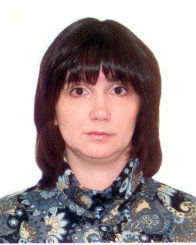‘Each Student Studies on His Own, and the Teacher Is Only the Torch Which Lights His Way through a Dark Forest’
Ella Khabina, Associate Professor at the Faculty of Economics department of Higher Mathematics, was named one of the best HSE teachers conducting seminar classes in 2012, in a vote by students from the Faculty of Economics.
Ella Khabina
— How do you manage to get students interested in your subject?
— I always try to put myself in their place and organize the studying in a way which would be comfortable and interesting for me. Generally speaking, each student studies on his own, and the teacher is only the torch which lights his way through a dark forest.
Of course, the methods of information delivery depend on the specific discipline. When I read the course I created together with my colleagues – Discreet Mathematical Models – I use the method of lecturing which is traditional for Western universities – students read the lecture materials beforehand and come to the class already prepared to some extent. This method allows them to see the lecture as a discussion, or a consultation, where the lecturer clarifies certain details.
— What qualities should a teacher have in order to become the best from a students’ point of view?
The most important thing is not to be indifferent. If a teacher cares about the results of his work, he is a good teacher. Moreover, students can feel when a lecturer is indifferent to his course, and they also become ambivalent to this subject and the whole course. Of course, patience, the ability to create a certain psychological climate during classes, a willingness to make sure every student understands the subject and a desire to grow professionally are also important, but everything stems from caring about the process.
— Are mathematical specializations in demand in today’s labour market?
I used to participate in a project called ‘TUNING Educational Structures’ in Russia. This project created some frameworks for implementing the Bologna agreement. As part of this project, we studied problems related to the specifics of teaching pure and applied maths in different countries and tried to understand what a mathematician should be in order to be in demand in the labour market.
And, as part of this research, we organized surveys among employers to determine how willing they were to work with our graduates and what they felt was lacking in our graduates. It turned out that employers are very willing to employ mathematicians. There are two main reasons for this. First, experts in maths have a special level of intelligence organization. They are able to define tasks and find solutions. This vital skill is already in their nature. The other thing is related to the HSE’s style. A HSE graduate is able to work, to develop their knowledge, and ready to master various types of work. Since the labour market is an ever-changing beast, the ability to learn and be flexible is essential.
Anastasia Chumak, HSE News Service
See also:
HSE Staff Receive Acknowledgement Medals
Some HSE staff members have received ‘Acknowledgement’ medals for their professional achievements and hard work.
HSE Staff Members Receive Acknowledgement Medals
Following a directive of the Rector, key HSE staff members have been awarded ‘Acknowledgement’ medals for their high professional achievements and devotion to work.
Mikhail Blinkin Appointed Acting Dean at Vysokovsky Graduate School of Urbanism
Mikhail Blinkin is one of Russia’s leading experts in urbanism, city planning, and urban transport. He has headed the HSE Institute for Transport Economics and Transport Policy Studies since 2011 and has been HSE Tenured Professor since 2013. In 2017, Mikhail Blinkin was the recipient of an HSE Honour Award 1st Class, as well as the Golden HSE award for Best Expert.
‘HSE Offers Solutions Aimed at the Future…’
On November 27, the HSE Academic Council held an awards ceremony dedicated to the university’s 25th anniversary. The meeting saw the participation of representatives of the Russian President, members of government, and members of the Russian Federal Assembly. Governmental awards were given to a number of HSE employees for their tremendous accomplishments.
HSE’s Best Teacher Results Announced
The Best Teachers 2017 competition at HSE recently reached its completion. Although the overall procedure this year was the same as it was in 2016, the financial terms changed – the bonuses for the winners have been increased. Vadim Radaev, First Vice Rector of HSE, told us about the vote and some of the perks for all of the winners.
HSE Staff Receive Commendations from President Putin
Russian President Vladimir Putin has signed a decree for the commendation of prominent public and political figures. Andrey Zhulin, Vice Rector at HSE Perm, Galina Volodina, Director of HSE Perm, and Valeria Kasamara, HSE’s Senior Director for Government Relations, are among the figures mentioned in the decree.
HSE Best Teachers Election Starts
From May 29 to June 18 students can vote for HSE’s best teachers of the academic year. This year there is no need to come to the university to vote. Students can submit their scores online via LMS.
HSE Awards Best Teachers of 2016
The Higher School of Economics has selected its Best Teachers of 2016. This year the voting process was different from previous years’, and First Vice Rector Vadim Radaev explains how.
The Votes Are in for HSE's Best Teachers of 2015
Students and alumni of the Higher School of Economics in Moscow and St. Petersburg have determined the Best Teachers of 2015. HSE First Vice Rector Vadim Radaev discusses the results of the voting.
Book Published About the Mythologisation of Western Values during Perestroika
A book entitled The Mythologies of Capitalism and the End of the Soviet Project by Associate Professor at the HSE Faculty of Media Communications Olga Baysha has been published by Lexington Books (United States).


